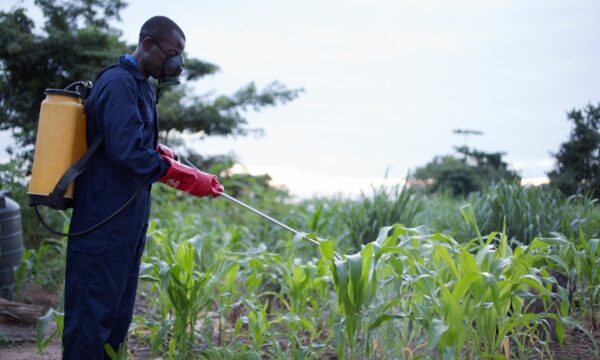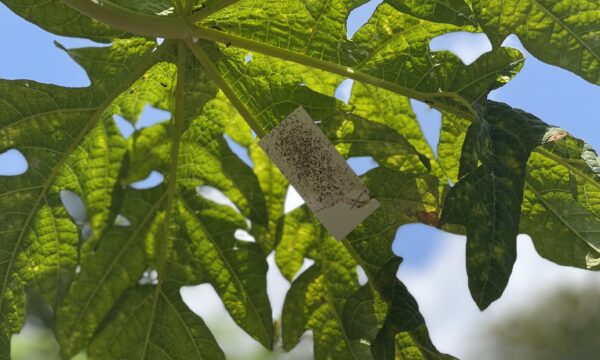 On Friday, the International Plant Protection Convention (IPPC) released an official pest report, submitted by KEPHIS, for the presence of Maize lethal necrosis disease (MLND) in Kenya. This disease is caused by a co-infection of Maize Chlorotic Mottle Virus and another cereal potyvirus, such as Sugarcane Mosaic Virus, Wheat Streak Mosaic Virus or Maize Dwarf Mosaic Virus. This co-infection causes more severe symptoms that either of the viruses causes alone. Symptoms include mottling, stunting, necrosis and malformed ears.
On Friday, the International Plant Protection Convention (IPPC) released an official pest report, submitted by KEPHIS, for the presence of Maize lethal necrosis disease (MLND) in Kenya. This disease is caused by a co-infection of Maize Chlorotic Mottle Virus and another cereal potyvirus, such as Sugarcane Mosaic Virus, Wheat Streak Mosaic Virus or Maize Dwarf Mosaic Virus. This co-infection causes more severe symptoms that either of the viruses causes alone. Symptoms include mottling, stunting, necrosis and malformed ears.
MLND can devastate maize crops, impacting farmers’ incomes and the food security of the area. To find out how to recognise and control MLND, read the Plantwise Factsheet for Farmers created by employees from the Ministry of Agriculture and CABI.
Factsheets for Farmers are produced by partners in Plantwise countries to communicate agricultural extension information. To see more about the content held on the Plantwise knowledge bank, please click here.
1 Comment
Leave a Reply
Related News & Blogs
How do pest risk registers address the spread of plant pests in Africa?
Pest risk registers can help to solve problems in agriculture, addressing the growing global threat of plant pests. Moreover, changing weather patterns, led by rising temperatures, are causing them to reproduce faster and expand into new regions. In ad…
10 July 2025





Am an Agricultural Extension agent with the Ministry of Agriculture Kenya. While extension services is to improve the quality of lives of the rural poor through participatory approaches, lobbying and advocacy, and capacity building with stakeholders in the villages, the greatest challenge i face is how to offer quality services with clarity, which could be enabled with the use of a projector and power generator, tripod stand for flip charts and a motor cycle. The farming community with this gadgets shall be empowered adequately to avert unnecessary food crisis and crop loses. Would you be in a position to supply me the inputs and try its impact?
Khaduli Kenneth
(Kenya)